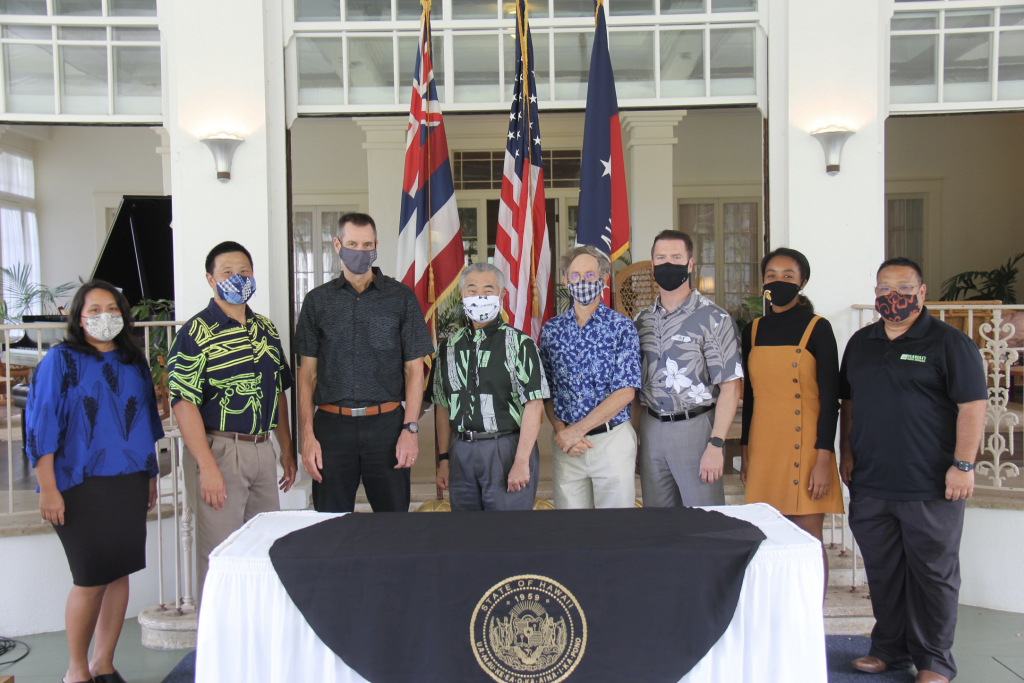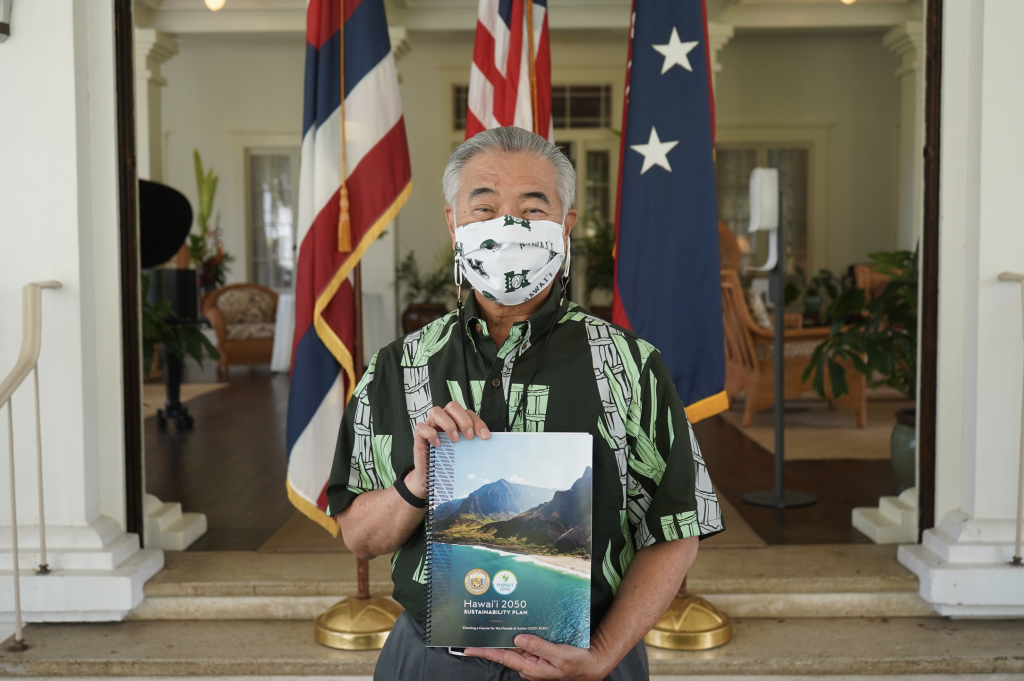Ulupono Initiative Commends the State’s Commitment to Buying Local

Governor David Ige signed House Bill 767 HD2 SD2, House Bill 817 HD2 SD2, and Senate Bill 512, SD2 HD1 CD1 into law on Friday. Supporters say the three bills leverage existing state food purchases and programs to strengthen the local food production market and its resilience.
“These meaningful bills, passed by the Legislature and today signed into law, represent clear recognition by our leaders of the significant role our state government must play in supporting local farmers and ranchers, who are critical to Hawai‘i’s resilience,” said Ulupono Initiative President Murray Clay, who attended Friday’s bill signing ceremony at Washington Place.
The Ulupono Initiative is a mission-driven venture of The Omidyar Group. It was founded in 2009 to improve the quality of life for the people of Hawai‘i by working toward sustainable solutions that support and promote locally produced food, renewable energy, clean transportation, and better management of freshwater and waste.

According to Ulupono executives, the pandemic “exposed the great risk Hawai‘i is taking by continuing to rely on importing 80-90% of its food and just-in-time delivery.” The group contends that “a strong agricultural economy is a resilient one, and these bills will strengthen island ag producers by providing a reliable market, leveraging dollars that state institutions are already spending by directing them locally.“
With students returning to classrooms, Ulupono executives say HB 767 will not only support the state’s farm-to-school programs but accelerate them.
Meanwhile, HB 817 seeks to ensure state government — across all state institutional programs — is leading by example to support the local agricultural community.
“These farm-to-school and farm-to-state bills will be as impactful to the local food sector in Hawai‘i, as the 100% renewable energy bill was to Hawai‘i’s energy sector. Harnessing state purchasing power will help agriculture grow again as a sector in the islands.”
HB 767, spearheaded by Rep. Ty Cullen, and embraced by his colleagues Reps. Mark Hashem, Sylvia Luke and Amy Perruso, moves the state’s Farm to School program under the scope of the Hawai‘i State Department of Education. Additionally, it requires that, at minimum, 30% of the food served in public schools be sourced locally by 2030.
HB 817, led by Rep. Scot Matayoshi — with support from multiple legislators, including Reps. Patrick Branco, Angus McKelvey and Nicole Lowen — requires each state department to ensure a percentage of the produce purchased by them is locally grown and provide a report on progress to the Legislature. By establishing the 50% by 2050 goal, with relative benchmarks along the way, the State of Hawai‘i is supporting local farmers and ranchers with a consistent market, providing fresh and healthy products to the community, and keeping state government money here in the Islands.
In addition, SB 512 supported by Sens. Donovan Dela Cruz and Mike Gabbard, and Reps. Sylvia Luke and Mark Hashem, enhances the Hawai‘i Healthy Food Incentive Program — also known as the “DA BUX Double Up Food Bucks Program” — which doubles the purchasing power of Supplemental Nutrition Assistance Program (SNAP) toward locally grown fruits and vegetables at participating grocery stores, mobile markets and other retail outlets. SB 512 removes a $10 per visit, per day, cap on the dollar-for-dollar match program.




_1768613517521.webp)



